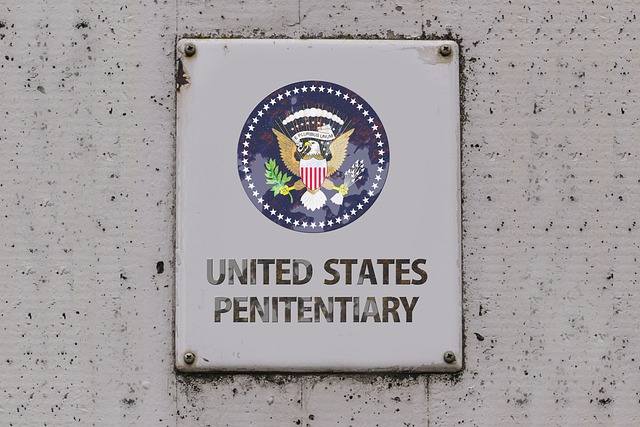The global ride-sharing industry faces a complex regulatory landscape regarding driver accountability, particularly around DUI laws that vary significantly worldwide. Balancing strict zero-tolerance policies with rehabilitation perspectives requires international collaboration to harmonize standards. Navigating diverse immigration statuses and driver licensing presents unique challenges, especially for undocumented immigrants relying on ride-sharing in regions with stringent policies. Enhanced screening processes, including comprehensive background checks and digital verification, mitigate risks. Technological advancements, such as real-time tracking and global immigration policy integration, further strengthen safety by ensuring drivers comply with legal requirements.
“In the dynamic landscape of ride-sharing, ensuring driver accountability is paramount for safety and legal compliance. As a global phenomenon, this industry faces unique challenges, particularly with diverse immigration statuses and varying DUI laws across borders. This article navigates the complex web of international regulations, exploring themes such as enhanced driver screening, technology’s role in accountability, and offers insights into immigration-licensing integration. By delving into these aspects, we aim to illuminate global immigration and DUI perspectives crucial for maintaining a safe ride-sharing environment.”
- Global Ride-Sharing Regulations: A Legal Perspective
- Immigration Status and Driver Licensing: Challenges and Solutions
- DUI Laws Across Borders: Understanding Cross-Country Differences
- Enhancing Driver Screening: Best Practices for Safety
- The Role of Technology in Holding Drivers Accountable
Global Ride-Sharing Regulations: A Legal Perspective

The global landscape of ride-sharing regulations is a complex web, reflecting diverse legal perspectives and immigration policies across countries. In many jurisdictions, ride-sharing drivers are held to stringent standards, particularly regarding insurance coverage and background checks, to ensure passenger safety. However, when it comes to issues like drunk driving (DUI), regulations vary widely. Some regions have strict zero-tolerance policies, mandating harsh penalties for DUI offenses committed by ride-sharing drivers. These measures aim to protect the public and maintain the integrity of the industry.
In contrast, other areas might take a more nuanced approach, considering factors like first-time offenses or implementing rehabilitation programs. This variation is influenced by global Immigration perspectives, as well, with some countries utilizing ride-sharing as a means for skilled drivers to contribute to their local economies. Balancing passenger safety and these diverse legal viewpoints is an ongoing challenge, underscoring the need for international collaboration and harmonization in ride-sharing driver accountability standards.
Immigration Status and Driver Licensing: Challenges and Solutions

The immigration status and driver licensing of ride-sharing drivers present unique challenges across diverse global landscapes, with varying regulations and perspectives on DUI (Driving Under the Influence) laws. In many countries, undocumented immigrants often turn to ride-sharing as a primary source of income, despite the legal risks. This is especially true in regions with stringent immigration policies, where they may lack traditional employment opportunities. However, without proper licensing or verification processes, these drivers pose safety concerns, particularly regarding DUI enforcement.
To address these issues, collaborative efforts between local authorities, ride-sharing companies, and immigration services are necessary. Background check mechanisms that consider global Immigration and DUI perspectives can help ensure that only qualified and licensed individuals operate as drivers. This includes cross-border information sharing and standardized licensing frameworks, allowing for the identification and management of potential risks while fostering a more inclusive and regulated ride-sharing ecosystem.
DUI Laws Across Borders: Understanding Cross-Country Differences

In the global landscape of ride-sharing services, understanding DUI laws across borders is a critical aspect of ensuring driver accountability. With international travel becoming increasingly common, drivers and passengers alike must be aware of the varying legal implications of impaired driving worldwide. Each country enforces its own strictures regarding alcohol consumption and vehicle operation, reflecting diverse cultural perspectives on public safety.
The Global Immigration and DUI Perspectives present a complex web of regulations that ride-sharing companies must navigate. For instance, while some nations follow a zero-tolerance approach with stringent blood alcohol limits, others may have more lenient thresholds or alternative penalties for first-time offenders. Staying informed about these cross-country differences is essential to upholding safety standards and avoiding legal complications during international operations.
Enhancing Driver Screening: Best Practices for Safety

Ensuring driver safety is paramount in the ride-sharing industry, especially considering global immigration and DUI perspectives. Enhancing driver screening processes is a proactive step to mitigate risks associated with unfamiliar drivers on the road. Best practices include comprehensive background checks that delve into criminal records, driving history, and any international licenses or immigrations statuses. These thorough screenings can help identify potential dangers before they pose a threat to passengers’ safety.
Additionally, implementing robust verification systems, such as requiring drivers to upload clear identification documents and proof of insurance, adds an extra layer of protection. By adopting these stringent screening measures, ride-sharing companies can foster public trust while promoting accountability among their driver network, ultimately contributing to a safer experience for everyone involved.
The Role of Technology in Holding Drivers Accountable

Advancements in technology have significantly contributed to enhancing accountability among ride-sharing drivers, especially considering global immigration and DUI (Driving Under the Influence) perspectives. Digital platforms equipped with real-time tracking, GPS mapping, and data analytics play a pivotal role in monitoring driver behavior. These technologies enable swift verification of driver credentials, background checks, and ongoing performance evaluation, ensuring only qualified and responsible individuals operate under the brand.
Moreover, innovative solutions like in-app reporting mechanisms empower both passengers and fellow drivers to document unsafe practices or incidents. This collaborative approach leverages technology’s reach to create a transparent environment, deterring potential misconduct and fostering a culture of accountability. Global immigration policies, particularly those involving digital identity verification, further strengthen this framework by ensuring drivers comply with legal requirements, enhancing overall safety on the roads.
In conclusion, addressing ride-sharing driver accountability involves navigating complex landscapes of global immigration and DUI perspectives. As regulations vary across borders, harmonizing standards and leveraging technology are essential for ensuring safety and compliance. By understanding challenges like immigrant licensing issues and cross-country DUI laws, along with enhancing driver screening and embracing innovative solutions, the industry can foster a culture of responsible ride-sharing worldwide.






